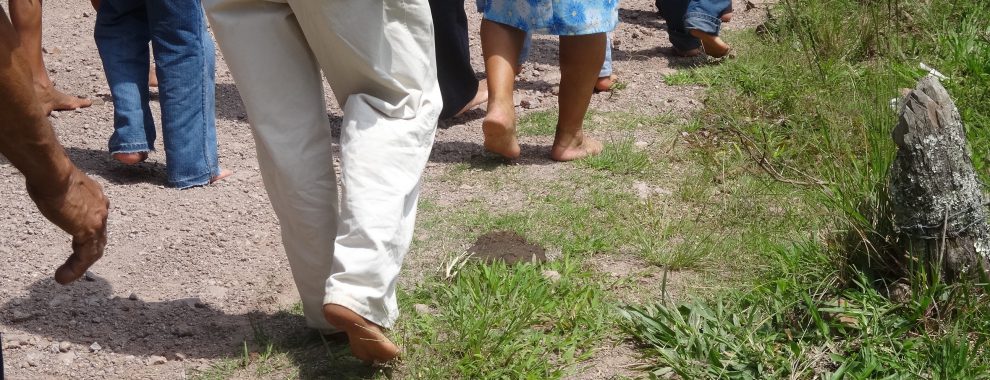What are some books that touched me this past year. I’ve done a lot of reading this year, 49 at this point.
The best books for me were:
- Cathy Wright, LSJ, Saint Charles de Foucauld: His Life and Spirituality. Boston, MA: Pauline Books and Media, 2022 [This book made Saint Charles alive for me and helped me understand better my vocation as a deacon in Honduras.]
- Scott P. Detisch, Being Claimed by the Eucharist We Celebrate: a spiritual narrative for priests and deacons. Collegeville, MN: Liturgical Press, 2022. [One of the best books I’ve read this year, bringing meaning to the Eucharist and to my diaconal vocation.)
- D. L. Mayfield, Unruly Saint: Dorothy Day’s Radical Vision and Its Challenge for Our Times. Minneapolis, MN: Broadleaf Books, 2022. [Dorothy Day as seen by a non-Catholic woman who lets Dorothy Day touch her life.]
- Alicia Von Stamwitz, ed., Ronald Rolheiser: Essential Spiritual Writings (Modern Spiritual Masters). Maryknoll, NY:Orbis Books, 2021. [Selection from a master of the spiritual life.]
- Dorothy Day, On Pilgrimage: The Seventies. Edited by Robert Ellsberg. Maryknoll, NY: Orbis Books, 2022. [Mostly writings of Dorothy Day from the Catholic Worker.]
- Cyprian Consiglio, OSB Cam., The God who gave you birth: a spirituality of kenosis. Collegeville, MN: Liturgical Press, 2021.
- Pontificio Consejo para la Promoción de la Nueva Evangelización, Directorio para la Catequesis. Bogotá, Colombia: CELAM, 2020.
Other books that touched me included:
- Kelley Nikondeha, The First Advent in Palestine Reversals, Resistance, and the Ongoing Complexity of Hope. Minneapolis, MN: Broadleaf Books, 2022. [A provocative rereading of the Nativity accounts with reference to Palestine, then and now.]
- Clarence Jordan, The Inconvenient Gospel: A Southern Prophet Tackles War, Wealth, Race, and Religion. Edited by Frederick L. Downing. Walden, NY: Plough Publishing House, 2022. [Great essays from a southern prophet]
- Will D. Campbell, Writings on Reconciliation and Resistance. Edited by Richard C. Goode. Eugene, OR: Cascade Books (Wipf and Stock Publishers), 2010. [Writings of an unconventional Baptist from the South.]
- Mary Catherine Hilkert, Naming Grace: Preaching and the Sacramental Imagination. New York: Continuum, 2006 (1997)
- Sister Wendy Beckett and Robert Ellsberg, Dearest Sister Wendy . . . A Surprising Story of Faith and Friendship. Maryknoll, NY Orbis Books, 2022. [Delightful correspondence]
- William T. Ditewig, Courageous Humility: Reflections on the Church, Diakonia, and Deacons. New York: Paulist Press, 2022. [A great book, illuminating aspects of the diaconate as a permanent state.]
- Frederick Buechner, Buechner 101: Essays, Excerpts, Sermons and Friends. 2014.
- Albert Nolan. Jesus Before Christianity: Twenty-fifth Anniversary Edition. Orbis Books, 2001.
- Walter Brueggemann, Embracing the Transformation. Edited by K. C. Hanson. Eugene, OR: Cascade Books, 2014.
- Kirstin Valdez Quade, The Five Wounds: A Novel. New York: Norton, 2021. [A novel that opened my heart to compassion.]
- Stanley Hauerwas and William H. Willimon: Resident Aliens: Life in the Christian Colony. (Expanded 25th Anniversary Edition.) Nashville, TN: Abingdon Press, 2014.
- Daniel Berrigan, SJ, The Trouble with Our State. Eugene, OR: Resource Publications, 2021.
- Erik Varden, Entering the Twofold Mystery: On Christian Conversion. London, Bloomsbury Continuum, 2022.
- Frederick Christian Bauerschmidt, The Love That Is God: An Invitation to Christian Faith. Grand Rapids, Michigan: Wm. B. Eerdmans Publishing Co., 2020.
- Edward Foley, Capuchin, Preaching as Paying Attention: Theological Reflection in the Pulpit. Chicago, IL: Liturgy Training Publications, 2021.
- William H. Willimon, Preachers Dare: Speaking for God. Nashville: Abingdon Press, 2020.
Some books I want to read (or finish) in 2023:
- José Gabriel Mesa Angulo, O.P., Diaconado: Orden y ministerio: Prospectiva teológia desde Lumen Gentium 29
- Anna Rowlands, Towards a Politics of Communion: Catholic Social Teaching in Dark Times.
- Loughlan Sofield, Carroll Juliano, and Rosine Hammett, Design for Wholeness: Dealing with Anger, Learning to Forgive, Building Self-Esteem
- Hosffman Ospino, El Credo: Un encuentro con la fe de la Iglesia.
- Walter Brueggemann, Spirituality of the Psalms
- Howard Thurman, Sermons on the Parables.
- Monika K. Hellwig, The Eucharist and the Hungers of the World.
- Ana María Pineda, R.S.M., Rutilio Grande: Memory and Legacy of a Jesuit Martyr.
- Michael Casey, Sacred Reading: The Ancient Art of Lectio Divina
- Helena López de Mézerville, Sacerdocio y Celibato: Reflexiones sobre la vida celebataria.
























